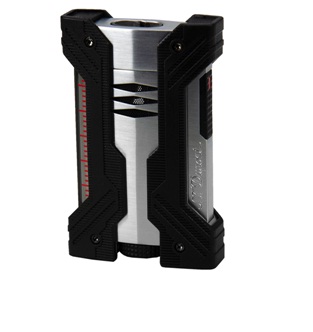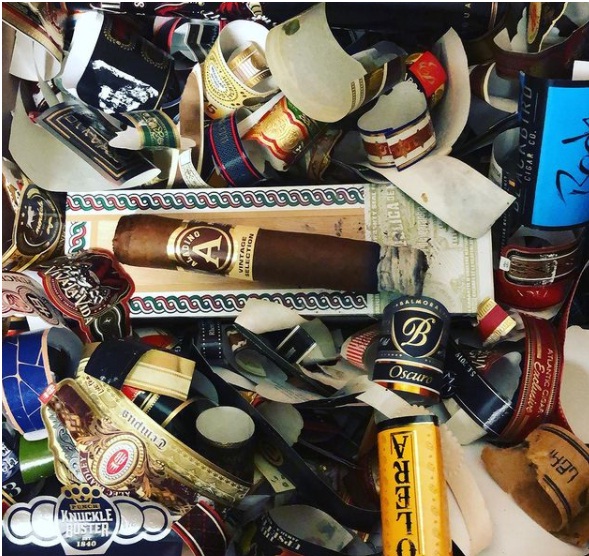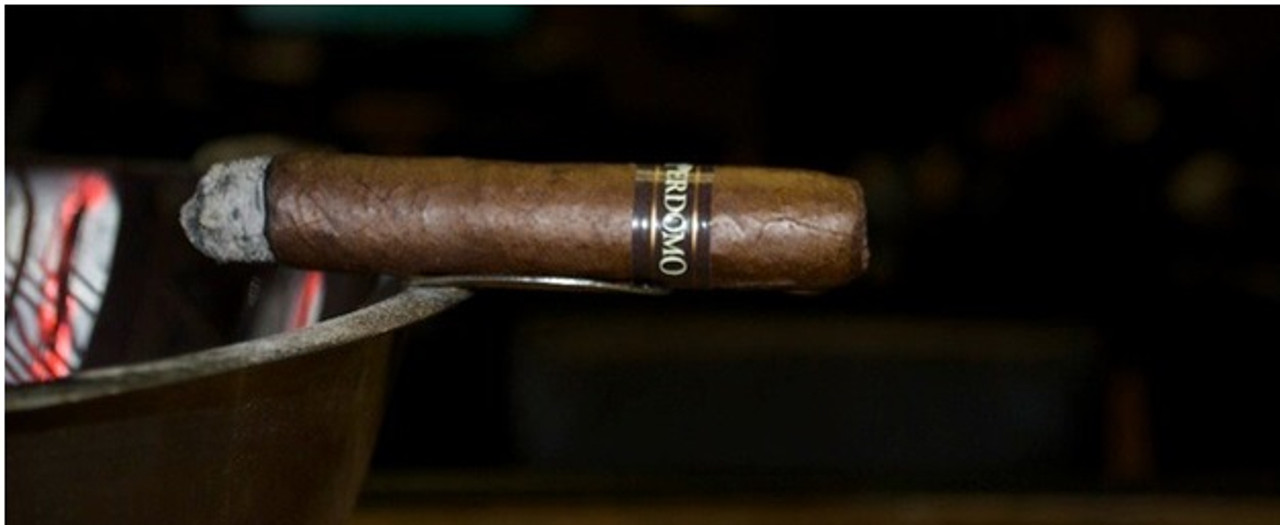As you know, you need more than just a fine cigar to enjoy it. They don’t cut, punch, or light themselves, and if you’re smoking inside, where do you put the ashes? A cigar also can’t be left out on the counter, or carried about haphazardly in a pocket or a briefcase - at least not without assuming the risk of damage to the cigar.
These are the reasons we have cigar accessories, which not only enable the enjoyment of smoking a cigar but make it better.
What accessories, then, do you need, and how do you choose which are right for your purposes? In this article, we’re going to take a look at some differences in basic accessories, and which is best, given a unique set of circumstances. It’s not a complete list, but it is a good jumping-off point.
Punches vs. Cutters: Which Is Better?
Punches and cutters are some of the most basic accessories. Alongside a method for lighting the cigar, they are also some of the most essential cigar accessories because, without them, you simply can’t smoke a good cigar!
However, they are not the same and require different skills to use properly. In addition, they will not produce the same quality experience, so some users prefer one or the other, given personal preferences and experience.
Generally speaking, there are two types of cigar cutters, but if you peel back the layers, you can draw some finer distinctions. There are both single-bladed and double blades cigar cutters. Single-bladed cigar cutters are also sometimes known as guillotine cutters because of the method of their operation.
Some guillotine-style cutters have two blades that are closed towards each other. There are also double-bladed cutters that are joined at a hinge and open outward.
Cigar cutters are pretty popular among cigar enthusiasts because they are generally very easy to use and render a cigar ready for lighting. However, inexperienced cigar smokers may “crush” or compress the head of the cigar by applying too much pressure, or by trying to snip off too much from the end of the cigar.
This can be remedied by twisting around the wrapper with the blade at the portion to be removed, which can help prevent tearing the wrapper or compressing the filler, which could result in a lower quality smoking experience.
A variant of single-bladed cutters is known as V-cutters. These cutters remove a wedge-shaped plug from the end of the cigar and are surprisingly stable. They produce fewer issues with compression and damage to the wrapper.
There is, however, another class of cigar accessories known as cigar punches, which can be even easier to use than cutters and are nearly foolproof.
A cigar cutter is a hollow, sharpened ring that a cigar lover can use to push into the cap of the cigar. Once inserted, the plug can be twisted before it is removed, to take with it a small plug of tobacco.
An open draft hole is left in its place, which typically provides an even, smooth draw and enjoyable smoke, all things being equal.
For your purposes, if you’ve never had experience with either, try out both types of cutters (bladed cutters and punches) to see what works best for you. You might prefer one over the other, but you won’t know until you try.
Butane Fuel: Does Refinement Make a Difference?
Butane fuel itself might just be an accessory to an accessory, but for basically anyone that uses a lighter instead of matches or a cedar spill, it’s a very important one. There are, however, some nuanced differences in the quality of butane that deserve some attention.
Butane is made from four atoms of carbon and 10 atoms of hydrogen, giving the chemical nomenclature of C4H10. When butane is ignited in the presence of sufficient atmospheric oxygen, it burns cleanly and efficiently, producing only heat, water and carbon dioxide.
This is not extraneous scientific nonsense. There is a very good reason to be aware of these basic facts. It is this chemical composition that enables butane to be used as an excellent fuel for lighting cigars.
However, the butane in butane canisters is not pure. Manufacturing companies purify it in an attempt to make sure it is as pure as possible, but there’s always just a little bit of other impurities left over after the refinement process.
For cigar smokers, this matters for a very interesting and unexpected reason. You really can’t tell the difference in flavor between single refined and triple refined butane, so it doesn’t affect the quality of smoke. Well, there might be some smokers who say they can, but overall, there’s a bigger reason that the purity of butane matters.
The reason that the purity of butane matters for cigar smokers is because it can impact the lifespans of their lighters. Butane lighters, specifically torch lighters that are so popular with cigar smokers, have very sensitive ports that can easily clog up with impurities, and they are very difficult to clean.
Just a little bit of carbon soot or impurities in butane can effectively block the jets, rendering a butane lighter inoperable until serviced. So, to put it simply, the purer the butane, the longer your torch lighters are likely to last.
Lighters: How Many Torches Do You Need?
Let’s just state this right out of the gate. Not all cigar smokers use lighters to light their cigars. Some of them specifically eschew lighters in preference to matches or cedar spills, which some will claim provides a better experience.
However, many, many cigar smokers nowadays turn to the reliability and convenience of butane lighters, and specifically to butane torch lighters. There are numerous advantages to butane torch lighters.

Inexperienced smokers can indeed scorch the foot of a cigar with a torch lighter by applying it for too long, or too aggressively. It is also true that torch lighters guzzle fuel like an aging F-150. However, torch lighters are reliable and efficient. They can get a cigar toasted and lit in a matter of seconds.
In addition, torch lighters are a big bonus for smokers who only smoke outdoors, because they are nearly windproof. Aggressive gusts can blow them out, but for the most part, they stay lit in fairly inclement conditions.
Torch lighters also have what we can call a directional flame. It takes a special type of skill to light a cigar with a soft flame. You need to be very careful in how you position the cigar, how you draw and be mindful of rotating the cigar through the process. In addition, you need to be careful about how you apply the flame to the foot of the cigar.
A torch lighter can potentially change this. It even can produce a flame that burns nearly horizontally, or almost upside down. This enables smokers - even inexperienced smokers - to get even lights for their cigars, and to touch up areas of the cigar that are lagging or burning unevenly. It is much more difficult to do any of these things with a soft flame.
However, there is a valid question of how many torch flames you need. At one time, single-flame torch lighters were pretty common, but nowadays there are three and even four-flame jet lighters widely available - but are these necessary?
Well, all torch lighters burn hot, and if you aren’t judicious about how you light your cigar, you easily scorch the foot of the wrapper with a torch lighter, especially one with three or more jets.
Additionally, the more jets, the more fuel these lighters burn. Some of them burn so aggressively that they can burn out their reservoirs in around a minute. However, the stronger the flame, the more windproof the lighter is. Additionally, with more jets, a triple or quadruple flame torch lighter might even be considered more reliable.
For what it’s worth unless you’re particularly experienced with these types of cigar lighters, the extra jets might just not be worth it. There are plenty of fine single and double jet torch lighters out there that will do a fine job of lighting cigars - but again, this is a matter of personal preference.
Travel Cases: Are They Worth It?
Travel cases are another cigar accessory that every cigar smoker should own unless he or she is in the habit only of enjoying cigars within arm’s reach of the home cigar humidor.
Travel and other cigar cases are valuable for several reasons, and the minor expense is well worth the investment. For one thing, cigars need to be protected from light and humidity, and even cigar cases that are not true travel humidors will do at least a decent job of this. Keeping cigars sealed in a protective case will serve as the first defense against the environment. In other words, anything is better than nothing.
But even cigar cases that don’t insulate the cigars from changes in humidity are better than no cases at all. The thing to keep in mind here is that cigars are sensitive to pressure and mechanical damage. Many of the best cigars are hand-rolled, and packing them tightly into a bag or allowing them to bend or become compressed is a nearly sure-fire way to destroy the quality of the smoke.
A rigid cigar case will protect the cigars it contains from all of these and more, protecting the wrapper from scrapes and tears, and overall insulating the quality of the tobacco. For those that travel with cigars, cigar cases are a minor investment and a must-have.
How to Choose a Great Ashtray
Cigar ashtrays, like cigar cases, are also very valuable, very useful cigar accessories. For anyone that smokes inside or would like to contain ashes outside, an ashtray is a must.
An ashtray also doesn’t need to be purpose-built. A concave stone could, categorically, be considered a cigar ashtray. That said, the features of an ashtray will help to distinguish it and add value, making the cigar smoking experience that much more valuable.
Here are two features that make a cigar ashtray that much more valuable. One is that it should have several stirrups, and not just haphazardly arranged. It should have the stirrups positioned at angles. That way, when someone goes to rest a cigar there, it will accommodate other smokers who also wish to rest their cigars for a moment.
Having a few stirrups, or any stirrups is valuable also because it encourages smokers to allow their cigars to rest, which they otherwise just might not do. Smoking a cigar too quickly is a great way to ruin the experience. Some would advise you to take no more than a puff per minute, and an ashtray that encourages you to give it a rest is a good mnemonic device.
Another feature of an ashtray that will make it valuable is depth, accented with a steeply-sided design. The depth is important because it can contain a greater volume of ashes before it needs to be emptied, but this is secondary in importance to a more central aspect.
The deeper the ashtray, the better the ashtray will be able to obscure the unpleasant ashes, which is another big bonus for indoor smokers. You can host more companies, and the depth of the ashtray will also help to keep the air fresh after the company has departed.
All These Cigar Accessories and More, at Atlantic Cigar

Our selection of cigar accessories includes more than just those covered by this article, and we carry humidors and humidification accessories, and much more in addition to lighters, cutters, ashtrays, and the rest.
Our collection of useful accessories and tobacco-related products is rivaled only by our library of cigars online, which includes the most popular brands in the world. Whatever your favorite blend is, there’s a great chance we carry it, with enough variety left over for you to try something new every week.
Take a look through our collection and if you have any questions, make sure you get in touch with us at 800-887-7877.

